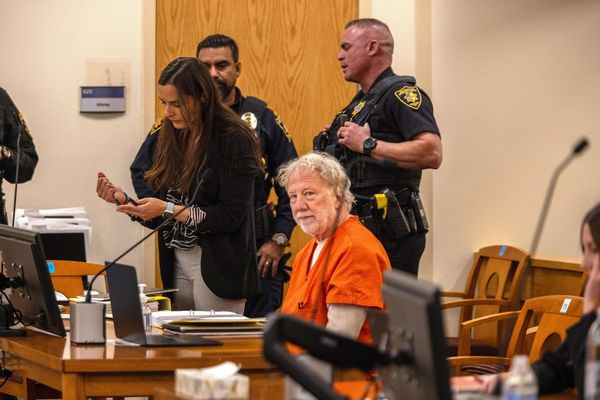Warrnambool resident Andrew Barry says the chance to return to work after a period of retirement was a welcome one.
"I didn't want to become a slave to the house. I wanted to do something, but I wasn't sure what it was," he said.
Mr Barry, 63, had retired early, after about 40 years in the agricultural sector.
After travelling for a while with his wife, he wanted to find a new activity.
He started out as a volunteer at Warrnambool's maritime museum and village, Flagstaff Hill, before being asked if he would be interested in a paid role as a night tour guide.
He said that in the past he never would have thought this would be a job that would suit him or that he would be able to do, but the "dice just rolled [his] way".
"Seriously, I enjoy what I do. I enjoy meeting people. It gets me away from the house and you meet local, state and international visitors," Mr Barry said
"After 40 years in the ag game, this is the best job I've ever had."
Mr Barry is an example of the type of person Warrnambool City Council is hoping to attract with its Unretire the 'Bool campaign, as it tries to fix the area's current labour shortage by targeting retired workers.
Next month, the council will host a gathering at the civic centre which economic development manager Steve Hoy said would work like a speed-dating exercise.
The council will invite employers who need more staff as well as previously retired people who are looking to work.
They will then be matched up based on availability, skills and interest.
The council is believed to be the first municipality in Australia to so clearly campaign and work towards this type of solution.
A mutually beneficial option
Monash University economics lecturer Isaac Gross said the initiative could be particularly beneficial for older women who "usually [have] far lower superannuation balances".
"I think there's a clear inequity there and this sort of policy could be one way that the government can help address it," Dr Gross said.
He said as long as employers were mindful that these employees would be a temporary solution who worked mostly part-time, then it could be beneficial to both parties.
"Retirees … could help to try and paper over that transition where we can get a few more people into the workforce … until hopefully the economy can right itself and we can return to some form of normality," he said.
An answer might be closer than people think
National Seniors Australia chief advocate Ian Henschke said Australia could learn from New Zealand's approach, with about 24.7 per cent of people over 65 still working in that country.
"We've heard of people [in Australia] where they work up until a certain hour and then they tell their employer, look, if I work beyond this, I start to lose too much from my pension," Mr Henschke said.
He said Australia needed a fairer system that did not reduce pension benefits when a retired person worked.
Instead, they would be taxed in an income bracket that included their new income and their pension payments.
National Seniors has been running a campaign focused on this since the previous federal government's 2019 retirement income review.
Mr Henschke said it was people who were not self-funded retirees and who were on pension payments who needed to work the most, and who could least afford to have payments reduced.







